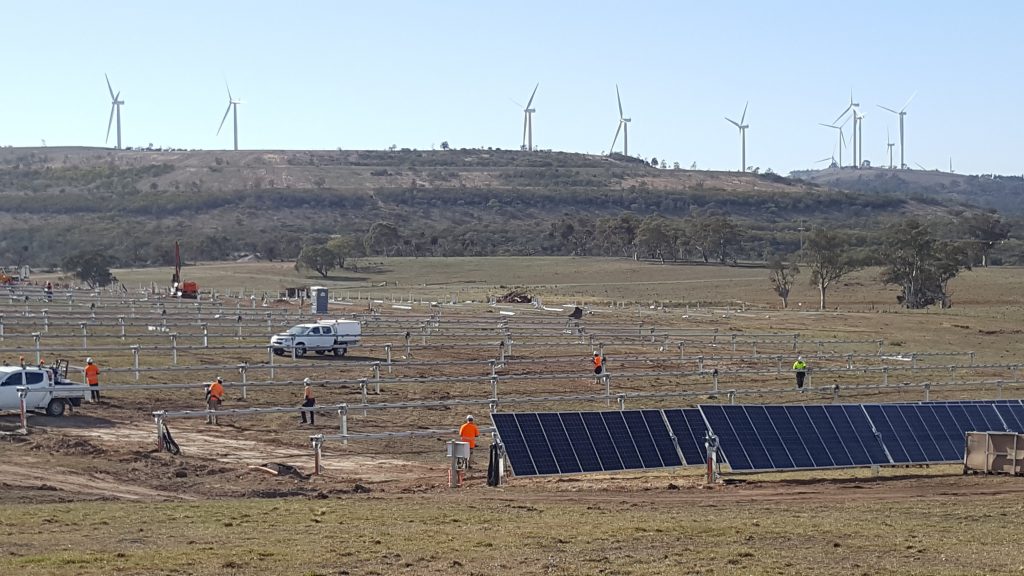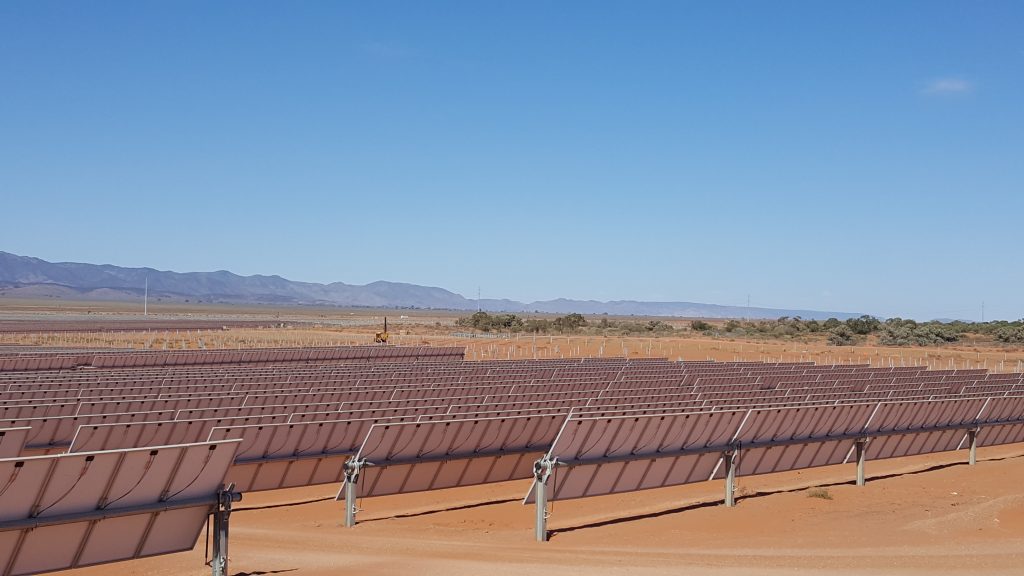A new wave of sustainable and distributed energy
The number of solar farms under development in Australia has grown in recent years. After several years of market and policy uncertainty and with construction costs coming down, solar farm developers and investors are feeling more confident about the prospects of medium-scale and large-scale solar power facilities.
Solar farms are distinguished from standard commercial solar installations by their size, location and purpose. Solar farms are generally in the megawatt (MW) scale and are ground-mounted as opposed to roof-mounted. Built to sell energy into the grid or to a designated purchaser – usually a heavy energy user or other commercial entity aiming to lighten electrical load or reduce their emissions footprint with clean energy offsets.
Historically, that meant building fixed-tilt solar arrays. Now however, developments in technology have resulted in advanced single-axis tracking systems with streamlined deployment and greater energy production. This in turn creates efficiencies and a positive return on investment for your next project. These systems allow for easier construction design, offer better ground coverage, more yield and a faster payback.
DRASOL can install your solar farm in challenging locations, unconstrained from issues with terrain grades, flooding concerns or east-west facing slopes with a suitable design.
569 MW and 18,033 trackers successfully installed
DRASOL are experienced in both large and small-scale projects, working under the umbrella of both external client systems and as a self-managed contractor, DRASOL are capable of providing a turnkey solution. We have extensive experience in the NEXTracker system and a healthy working relationship with the manufacturer, resulting in the ability to build a quality product in a short time frame.
At DRASOL, we have developed safe systems of work based around modular work groups. This greatly increases productivity with consistently high standards of quality workmanship. On larger projects, rotation of work groups reduces fatigue and the negative effects of extended repetitive work.
DRASOL has a multi-skilled workforce trained in all aspects of mechanical installation, which allows us the flexibility to follow variances in tight project construction programs. This also enables us to provide staff coverage in the event of absenteeism, should the need arise. A core component of our construction teams are from indigenous backgrounds or members of rural communities which DRASOL have trained extensively. We believe it is important to invest in the local communities, both financially and with skills-based knowledge, and our approach is aligned with the goals of the Australian Industry Participation Policy.



